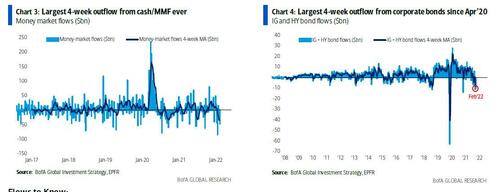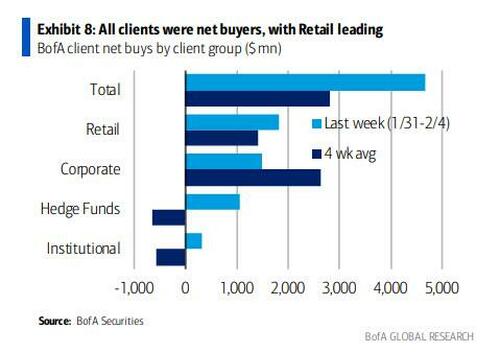On a Tuesday morning earnings call, Tenet Healthcare executives painted the picture of a healthcare enterprise with multiple sources of consistent revenue, free cash flow and growing profits.
The company has spent the last couple of years trimming the fat in its hospital business, bolstering the margins of its revenue cycle solutions business and, notably, dropping billions in cash to become one of the largest providers of ambulatory surgery services in the country.
Now with Tenet expecting half of its earnings to come from United Surgical Partners International (USPI), its ambulatory surgery subsidiary, by the end of 2023, Executive Chairman and former CEO Ron Rittenmeyer questioned why the market is still primarily treating his company as a chain of acute care hospitals.
"The recognition of USPI’s growing contribution and [revenue cycle subsidiary] Conifer’s cash flow generation, for some reason, seems lost in the broader question of Tenet being recognized as more than a hospital company," Rittenmeyer said during Tuesday's investor call. "With corresponding dialogues and our multiples remaining caught in this time-lapse, it appears that the transition of what Tenet has become and the deleveraging we’ve accomplished are not fully recognized in the valuation of the company. We believe it’s a point of view worthy of consideration.”
Rittenmeyer said that Tenet has already proven to investors that its restructure is yielding strong results on par with surgery center companies "valued at unbelievable high numbers."
"Our numbers don't reflect any of that. It just makes no sense," he said.
The executive chairman's frustration comes as Tenet posted a quarterly profit of $250 million ($2.30 per share), steady volumes and promises of continued recovery across its 2022 projections.
The net income is a drop from the $414 million posted by the company during last year’s fourth quarter, which had been buoyed by $325 million in COVID-related stimulus grant income. Removing the stimulus funds, Tenet increased its fourth-quarter net income from $89 million to $153 million year-over-year.
Although Tenet beat out Wall Street’s earnings estimate of $1.49 per share, the 60-hospital chain's $4.86 billion in quarterly net operating revenue fell below the expected $5 billion. The company's stock opened Tuesday's trading session flat but has risen roughly 5% over the course of the morning.
For the year, Tenet recorded $915 million in profit ($8.43 per share) and net operating revenues of $19.49 billion. The company had brought in a $399 million profit and $17.64 billion in revenue during 2020.
“Our strong performance throughout 2021 continued in the fourth quarter finishing the year with adjusted EBITDA of approximately $3.5 billion,” Rittenmeyer said in a prepared statement. “This was well in excess of our guidance from a year ago of $3 billion, and we also generated significant cash flow. Our results demonstrate that Tenet is focused on continued shareholder value enhancement through the delivery of top-quality medical care and services.”
Tenet’s hospital business segment claimed $3.91 billion in net operating revenue and, after adjustment, saw “consistent” volumes compared to last year, the company wrote.
Total admissions dropped 3.9% year over year, while outpatient visits and emergency room visits increased 8.8% and 16.3%, respectively. Same-hospital net patient services revenue grew 1.7% year over year before and after adjustment for admissions, “primarily reflecting higher patient acuity, favorable payer mix and pricing yield,” the company wrote.
USPI saw net operating revenues swell from $649 million to $742 million year-over-year. Same-facility system-wide surgical case volume increased 4.4% over the prior year’s fourth quarter.
Additionally, the quarter saw the close of Tenet’s SurgCenter Development acquisition, adding 86 ambulatory surgical centers and other ambulatory support services to its collection.
“Continued solid quarterly performance exemplifies the company’s dedication to operational excellence,” Saum Sutaria, M.D., Tenet Healthcare CEO, said in a statement. “With our ongoing expansion of USPI, we have become much more than a hospital company—acquiring ownership in or opening approximately 160 high-quality ambulatory facilities in the past year alone. Coupled with our solid performance across our hospitals as well as Conifer, and our commitment to high-quality care across all business units, we expect our performance trajectory to continue.”
Tenet is expecting that promising performance trajectory to land in the ballpark of $502 million to $677 million in profit ($4.56 to $6.16 per share) throughout 2022. The company is also projecting $19.5 billion to $19.9 billion in full-year revenue.
Tenet said that it “anticipates continuing recovery from the pandemic” and expects COVID-19 admissions to comprise less than 5% of total volumes across 2023. The company also noted that it has just over $1 billion in Medicare Advance Payments and payroll tax deferrals from fiscal year 2020 slated for the coming 12 months.
https://www.fiercehealthcare.com/hospitals/tenet-healthcare-beats-profits-dips-revenue-q4-2022


